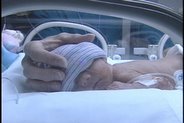 All eight people arrested in connection with the recent terror attacks in London and Glasgow are medical professionals employed by the UK’s National Health Service (NHS). Seven of the eight are medical doctors or medical students and the final suspect is a lab technician. This sad chapter casts a cloud over Muslim MDs who are speaking out against the recent violence.
All eight people arrested in connection with the recent terror attacks in London and Glasgow are medical professionals employed by the UK’s National Health Service (NHS). Seven of the eight are medical doctors or medical students and the final suspect is a lab technician. This sad chapter casts a cloud over Muslim MDs who are speaking out against the recent violence. But the attacks also illuminate the concern over the use of biological weapons by extremists. Physicians and those training to become physicians have access research facilities in hospitals and universities. While exotic pathogens such as anthrax and smallpox are difficult to obtain, healthcare professionals may have access to other 2nd tier agents that can be used as, or refined into, a bio-weapon. The CDC enumerated some of these ‘B & C’ level threats:
Category B
Second highest priority agents include those that
- are moderately easy to disseminate;
- cause moderate morbidity and low mortality; and
- require specific enhancements of CDC's diagnostic capacity and enhanced disease surveillance.
Category B agents include
- Coxiella burnetti (Q fever);
- Brucella species (brucellosis);
- Burkholderia mallei (glanders);
- alphaviruses,
- Venezuelan encephalomyelitis,
- eastern and western equine encephalomyelitis;
- ricin toxin from Ricinus communis (castor beans);
- epsilon toxin of Clostridium perfringens; and
- Staphylococcus enterotoxin B.
A subset of List B agents includes pathogens that are food- or waterborne.
These pathogens include but are not limited to
- Salmonella species,
- Shigella dysenteriae,
- Escherichia coli O157:H7,
- Vibrio cholerae, and
- Cryptosporidium parvum.
Category C
Third highest priority agents include emerging pathogens that could be engineered for mass dissemination in the future because of
- availability;
- ease of production and dissemination; and
- potential for high morbidity and mortality and major health impact.
Category C agents include
- Nipah virus,
- hantaviruses,
- tickborne hemorrhagic fever viruses,
- tickborne encephalitis viruses,
- yellow fever, and
- multidrug-resistant tuberculosis.
Terror organizations have relied on scientists in the past. A Pakistani scientist with an advanced degree in microbiology is reported to have obtained anthrax spores under the guise of legitimate research. Papers uncovered by coalition forces in Afghanistan in December 2001 showed that the scientist corresponded directly to al-Qaeda's No. 2 commander, Ayman al-Zawahiri. Al-Zawahiri is a doctor by training, having worked as a surgeon.
More recent developments are also cause for concern as this NPR story notes:
“But a worrying, almost prophetic, story emerged Wednesday from Baghdad: a Church of England clergyman, Andrew White, who is president for the Foundation of Reconciliation in the Middle East, based in Iraq, said he was at a conference in Amman, Jordan in April when he was taken aside by a Sunni religious leader.
"I listened to him for 40 minutes, and he went on about how they were going to destroy Britons and Americans and how they were going to be doing more in the U.K. and U.S., and he finished by saying 'those who cure you will kill you,'" White said. “
Now is not the time for fear mongering. But we should be aware that terrorists are able to attract and radicalize even the most educated in the community. It’s a reminder that we must remain vigilant on many fronts in order to protect ourselves from threats of terrorists.

